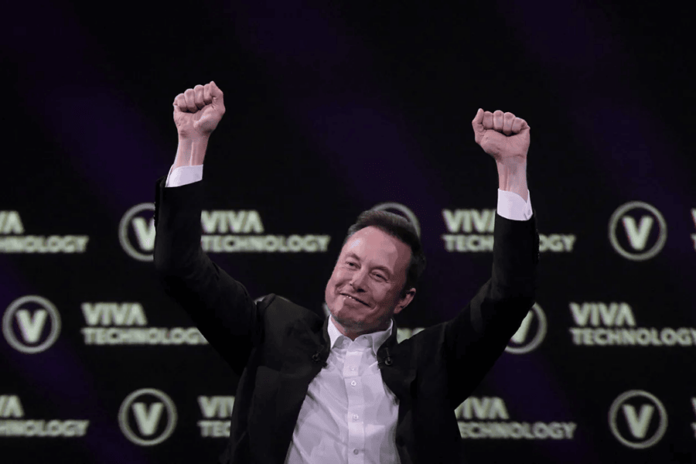Donald Trump’s upcoming administration is gearing up to fulfill his campaign promise to eliminate the electric vehicle tax credit that has been a boon for Tesla under President Joe Biden.
According to two insiders, Trump’s transition team plans to scrap the $7,500 tax break for EV buyers as part of a larger tax reform initiative, as reported by Reuters on Thursday.
This credit has significantly helped Elon Musk, the CEO of Tesla and Trump’s newly appointed head of the proposed Department of Government Efficiency.
Musk, who is a prominent supporter of Trump and ranks as the richest person in the world according to Forbes, acknowledged that while cutting this subsidy might impact Tesla—known primarily for its electric cars—it would hit their competitors in the U.S. even harder.
When asked why he supports someone looking to eliminate a benefit for his own company, Musk seemed unfazed. In fact, he tweeted during his July fundraising efforts for Trump: “Get rid of subsidies; it will only benefit Tesla.
And let’s remove subsidies across all sectors!” Following Trump’s win in the 2024 election, he announced that Musk and billionaire Vivek Ramaswamy would take charge of a department aimed at slashing potentially trillions from government spending.
In September, during an exchange on X with businessman Vinod Khosla about government support for his companies, Musk defended himself by saying: “SpaceX doesn’t receive any subsidies and got half what Boeing did for astronaut transport while doing double the work.”
He added that regarding Tesla’s finances, if you check their public filings you’ll see that EV incentives are just a small fraction of their revenue.
Even though Musk is now focused on cutting federal spending, many of his ventures are likely still going to benefit from government contracts—even if they eliminate that EV tax credit.
Over the past 16 years alone, Musk’s dealings with the government have amounted to nearly $20 billion based on federal contracting records.
Tesla
Since 2008, Musk’s car and energy company, famous for its cutting-edge electric cars and battery technology, has landed $41.9 million in federal contracts.
Notable buyers include the National Oceanic and Atmospheric Administration, which shelled out $13.6 million, NASA with $10.8 million, and the Department of Defense that invested $9 million.
Back in 2015, the Los Angeles Times highlighted that Musk’s expanding Tesla business received around $4.9 billion in government support.
This amount, as the paper explained, was calculated by looking at various sources like grants, tax incentives, factory building costs, low-interest loans that the company couldn’t offload, and environmental credits. It also included tax credits and rebates for Tesla buyers.
SpaceX
Since 2008, the aerospace firm owned by the tech billionaire has raked in almost $19.8 billion in federal contracts. Most of that—around $14.4 billion—has been funneled to NASA, while about $5.32 billion went to the Department of Defense for SpaceX rocket launches and satellites.
The fiscal year 2024 turned out to be SpaceX’s biggest yet, thanks in part to over $3.8 billion from U.S. government contracts. Plus, SpaceX is also working as a contractor for projects in countries like Germany, Great Britain, Italy, and Turkmenistan!

